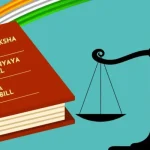In the case of Senthil Balaji v. The State Represented by Deputy Director and Ors.[ Criminal Appeal Nos. 2284-2285 of 2023 (@SLP (Criminal) Nos. 8939-8940 of 2023)), the Appellant is a Cabinet Minister of the State of Tamil Nadu. In 2021 a case was registered by Respondent No. 1 against the Appellant. Further, summons were issued requiring the Appellant’s attendance, and under section 17 of the Prevention of Money Laundering Act, 2002 (PMLA Act), a search was conducted at the Appellant’s premises. Subsequently, section 19 of the PMLA Act was Invoked after finding that the Appellant was not extending adequate cooperation. The Appellant filed an appeal before the Supreme Court challenging the custody of the Enforcement Directorate (“ED”).
The Supreme Court observed that Under Section 41A of the Criminal Procedure Code, 1973 (“CrPC”), Police must serve a person with notice prior to his arrest for offences punishable with Imprisonment for less than 7 years. The Section specifies the procedure to be followed before a person can be deprived of his liberty. Further, the section was introduced as a procedural safeguard against illegal arrest, aiming to protect the accused’s interest. Notably, the maximum punishment prescribed under the PMLA Act is 7 years.
Further, the Supreme Court stated that “In the absence of any mandate, one cannot force the Authorized Officer to ensure due compliance of Section 41A of the CrPC, 1973 especially when a clear, different and distinct methodology is available under the PMLA, 2002. Following Section 41A of the CrPC, 1973 for an arrest under the PMLA, 2002 would only defeat and destroy the very inquiry/investigation under the PMLA, 2002. Till summons are issued to a person, he is not expected to be in the know-how. Any prior Intimation, other than what is mandated under the PMLA, 1973 might seriously Impair the ongoing investigation.”
The Supreme Court referred to the judgement in Vijay Madanlal Choudhary v. Union of India [2022 (10) SCALE] to observe that an Authorized Officer under the PMLA who is to follow the mandate of Section 19 of the Act will not be duty bound to follow the procedure laid down under Section 41A of the CrPC. This is because the PMLA already contains sufficient safeguards against arrest, according to the Apex Court.
The Supreme Court further stated that “This provision cannot be termed as a supplement to Section 19 of the PMILA, 2002. The PMLA, 2002 being a sui generis legislation, has its own mechanism in dealing with arrest in the light of its objectives. The concern of the PMLA, 2002 is to prevent money laundering, make adequate recovery and punish the offender. That is the reason why a comprehensive procedure for summons, searches, and seizures etc., has been clearly stipulated under Chapter V of the PMLA, 2002. An arrest shall only be made after due compliance of the relevant provisions including Section 19 of the PMLA, 2002. Therefore, there is absolutely no need to follow and adopt Section 41A of the CrPC, 1973 especially in the teeth of Section 65 of the PMLA, 2002.”
The Supreme Court also observed that Section 41A of the CrPC was introduced to safeguard a person’s liberty according to the Interpretation of the said provision in Amesh Kumar v. State of Bihar, (2014) 8 SCC 273. The Supreme Court also referred to the 177th Report of the Law Commission, wherein it was stated that the police should focus more on serious offences and economic offences rather than minor offences. The need for Introducing Section 41A came from trying to end the practice of arresting persons for minor offences and keeping them in jail for long periods, according to the report. The Supreme Court thus concluded that Section 41A was meant to be applied to minor offences under the Indian Penal Code, 1860 and not economic offences.










